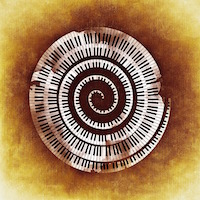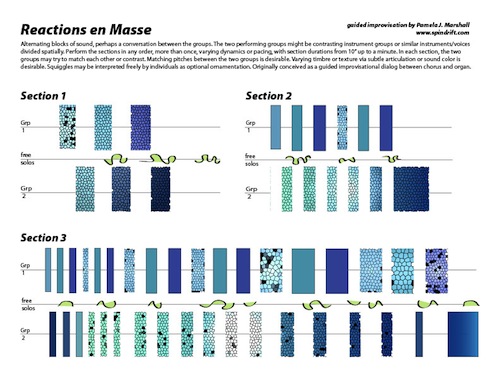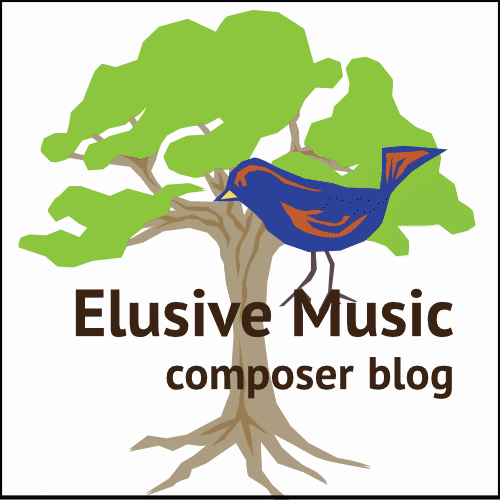
Graphic scores are guides for musical improvisation. These visual scores may not have any standard musical notation. There may be text directions to help you interpret the imagery — these directions may be specific or general.
Music exists in time. So, how do you mix the time basis of music with an image that you see all at once? The graphic score may show a progression, moving through the visual, but musical, idea. It may be one picture that you interpret freely. It may have several alternatives and you choose where to begin among several images.
Unless the directions are specific, it is up to you to choose what to play, guided by the shapes, colors, visual rhythms. You use your imagination to associate musical gestures with the imagery. You create the progression of evolving music, triggered by the imagery but unfolding with its own logic.
Examples
To get an overview of many beautiful graphic scores, go online to Google and search for “graphic scores examples” and click Images. You’ll see a beautiful array of images meant to convey musical ideas visually: rough sketches, squiggles on music staves, shapes and arrows, blocks and other textures.
Composer and artist Tom Phillips wrote about graphic scores in The Guardian in 2013. He provides an historical view of graphic scores, giving them a heyday in the 1970s. I didn’t realize they were passé. Graphic scores are having a resurgence, in this 2nd decade of the 21st century, along with growing interest in free-style improvisation.
Phillips’ article ends with a link to a gallery of graphic scores from Tom Phillips’ own work and others.
One of my scores – Réactions en Masse
Here’s my own Réactions en Masse, written for an improvising chorus and organ in Montréal. Two groups make alternating blocks of sound, listening and blending pitches, with one or more soloists singing ornamented lines. The blocks don’t have to be “pure” sustained tones. The imagery has scaly textures that you can interpret in subtle ways.

Try improvising with a graphic score
You can use a graphic score to stimulate your improvising imagination — for you improvising alone, or with a group.
You can draw your own image too. Give it a try!

Leave a Reply